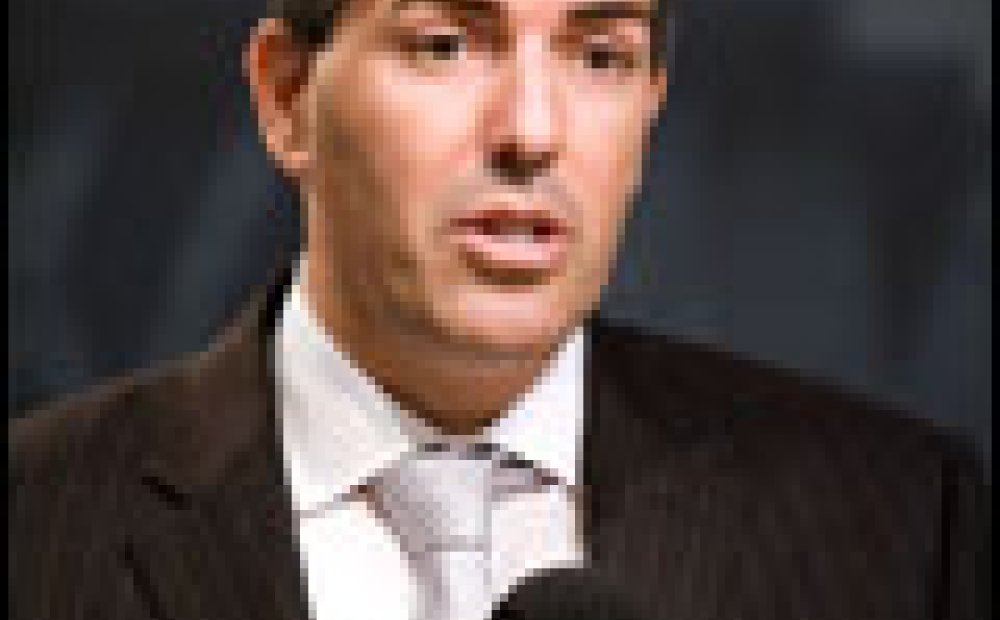Making the Connections: Animal Protection as a Domestic and International Public Policy Issue

"The cause of animal protection is one of the more altruistic concerns you'll find. It's a cause that arises from some of the best instincts of humanity," said Humane Society CEO Wayne Pacelle. Animals "are not just things, or resources, or commodities, or targets, or economic opportunities in the waiting. Animals have the same spark of life that we have."
Compassion for animals is a universal value. Animal cruelty, however, has been a problem throughout history, as many have tried to justify it economically or culturally. Pacelle underscored the need for boundaries and standards for animal conduct, particularly laws to forbid cruelty. Some laws have been adopted to prohibit animal fighting or baiting. "But we drew the curtain on the vast new systems of cruelty that were rising up, in the form of laboratories, factory farms, and other places where billions of animals are condemned to lives of unyielding misery," he said. "We too often resist change and defend what we've become accustomed to. Every age has its massive moral lapses, and this is one we must overcome in our age."
Animal protection has become a social concern, a matter of corporate responsibility, and essential to sound public policy. Yet as a society, he said, we tend to overlook normative abuse and tolerate large-scale cruelties, in slaughterhouses for example, for the sake of the economy. "The result is a world of contradictions in which personal cruelty is forbidden and often punished, while institutional cruelty remains common, legal, and too often unhindered."
Eradicating animal cruelty, while noble on its own, is also connected with many pressing global concerns, from climate change to disease to violent crime. Consider the environmental costs of raising 60 billion animals for food, many of them on industrialized factory farms. To halt the spread of diseases, many of which can jump from animals to people, Pacelle recommends stemming the exotic animal trade, the global cockfighting culture, and mass-confinement methods of producing poultry.
Violent crime also often stems from animal abuse. The recent Michael Vick dog-fighting case illustrated how such an activity usually accompanies other criminal behavior such as drug trafficking and human violence. In another recent case Pacelle cited, the California-based Hallmark/Westland Meat Packing Company was torturing dairy cows slated for slaughter using such tactics as electricity and water hoses up their nostrils to move them closer to the slaughter area. Such cases, as well as beef recalls due to disease scares, are leading the public to question gaps in the government's regulatory system.
Pacelle emphasized his concern over the growing business of factory farming, which he deemed morally corrupt. "It's a massively inefficient way to produce protein and it pollutes soil, air, and water," he said. Another environmental concern is that livestock agriculture produces the most greenhouse gas emissions in the world. Pacelle said, "The close connection between cruelty and other pressing social concerns reinforces the case for animal protection in the modern era."
During the Q&A session, Pacelle discussed the Humane Society's position on animals used for scientific research. He cited "three Rs": Refining techniques to minimize pain and distress; reducing the amount of experiments, and replacing such experiments with new techniques. He also addressed the subject of disease. He said 60 percent of diseases that afflict humans originally started in animals including tuberculosis, AIDS, pox, and even the common cold. He said packing animals on factory farms contribute to disease risks. Addressing such health concerns, he said, should be a priority for governments.
While Pacelle is a vegan, he acknowledges it's unrealistic to expect everyone to go that route, but he said reducing meat intake can make a huge difference. "Just reducing meat by 10 percent would save 1 billion animals."